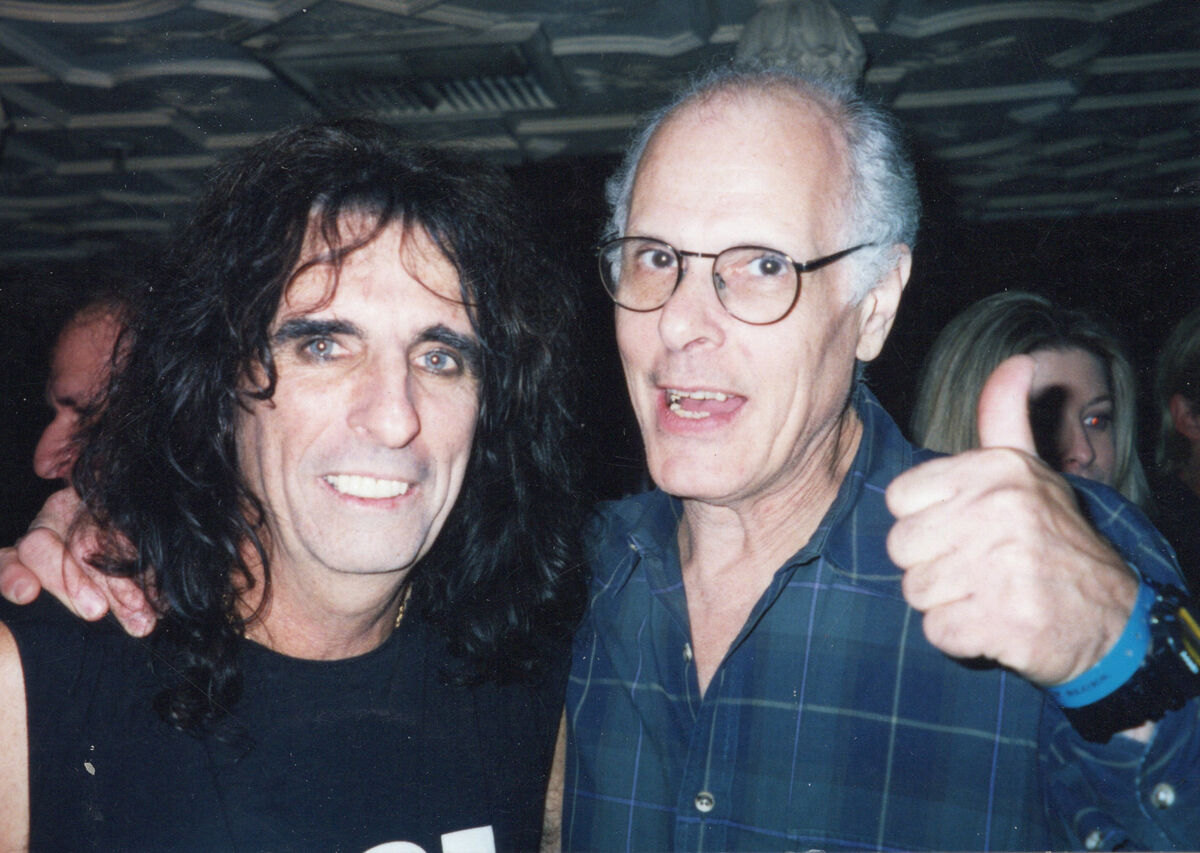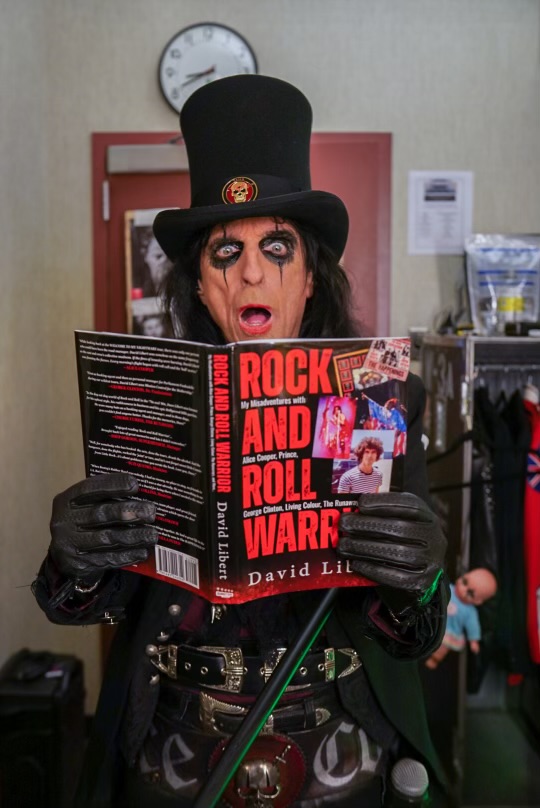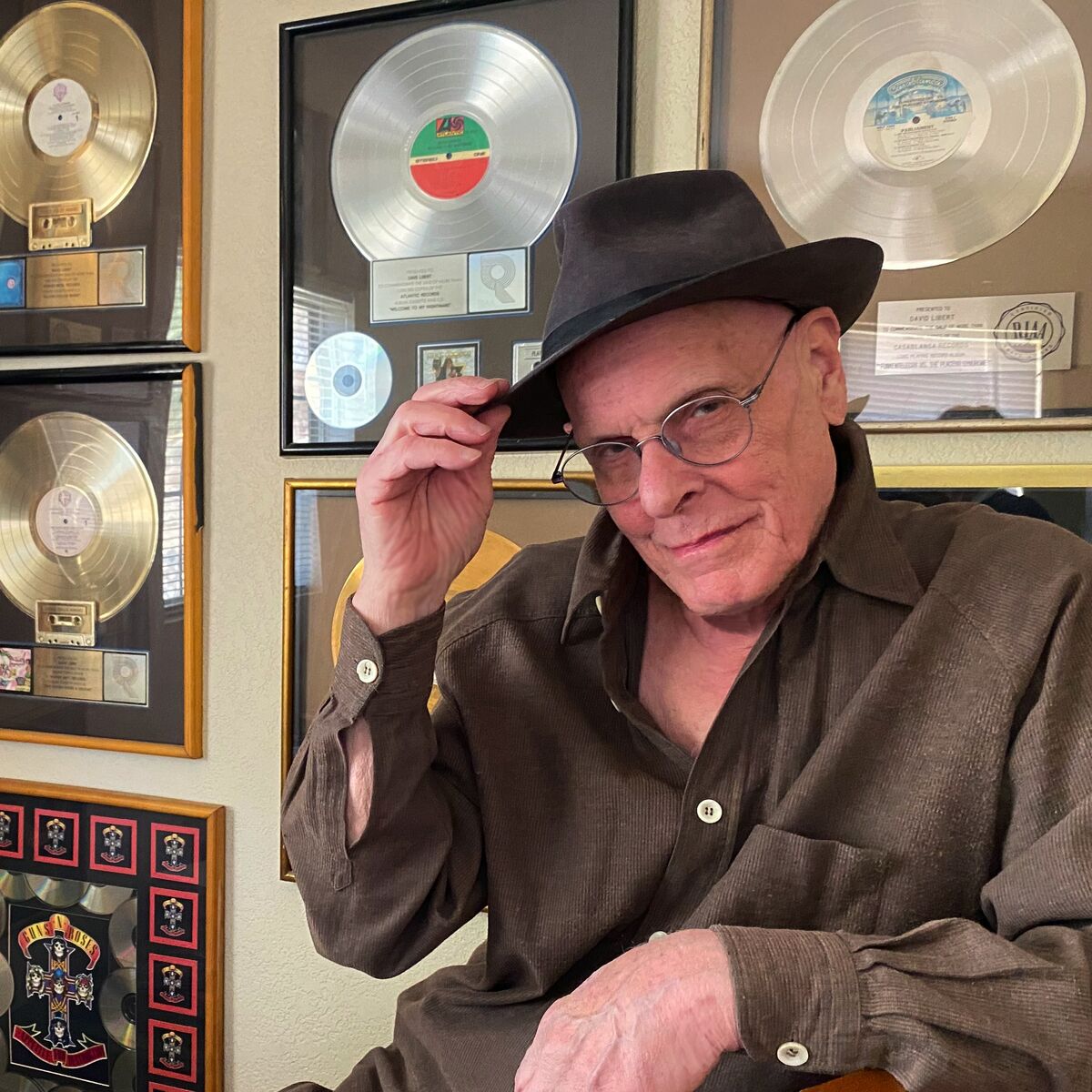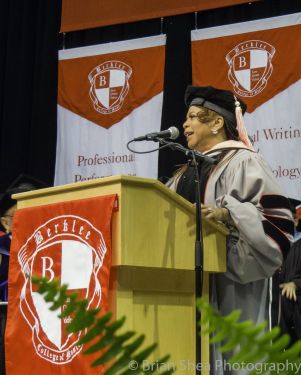There are not many people, within the music industry, able to say that they know every single secret of the business, as an artist, songwriter, road manager, artist manager, record producer and booking agent more than David Libert.
After having spent more than half a century living a highly intense life On The Road initially, as a successful artist with The Happenings in the 60's, then working and managing some of the biggest acts in the music business, like Alice Cooper, Prince, George Clinton, Living Colour, Parliament/Funkadelic, Bootsy Collins, Brian Auger, Sheila E and the list goes on and on, Libert, at the very respectable age of 79, has now decided to share some of the many formidable tales of his life in the music industry through the publication of his very first book, called Rock And Roll Warrior. Libert has kindly accepted Bluebird Reviews' invite to talk about Rock And Roll Warrior and the many aspects related to the making of the book and the personal and professional stories featured in it.
BR - Hi David, congratulation for Rock And Roll Warrior, a fascinating tale of a life lived intensely and very successfully On The Road. Did you feel at any point emotional, contrasting feeling at all about the memories, both positive or negative, that you went through in your glorious musical career, while writing the book?
DL - Well, strangely enough, I was more kind of analytical, about the book. I was thinking more about what would these people might have thought of, about what I was writing in the book. Yes, it did bring back memories and made me reflect on many things. I realized that, while I was living my life, doing what I was doing, that one day there would have been a story worth writing about. I don't think I got emotional about the book, it was more like "Gee, if I write about this story, would that person be thinking of, like I was throwing them under a bus or something of that ink. It was more a matter of deciding what you can and you cannot put into the book, because, in the beginning, I didn't realize that one has to make these conscious decisions, when writing a book but I guess that you live and learn, about these things.
BR - How hard was it for you to get the go-ahead, in the book, from those people you wrote about and worked with for a certain amount of years together with?
DL - I didn't ask anybody's permission, to be honest with you, about what I was going to write. I think I was pretty kind just about everyone I mentioned in Rock And Roll Warrior. If that could be said that I was throwing anyone under the bus, it would probably be George Clinton, because he had so many crazy and colourful things to write about, although I wrote also very kind things about him, in the book. I have a lot of admiration and respect for George but hey, these stuff I just had to put them in the book. I sent out, prior to publishing the book, few PDF copies of the book to get some opinions about what I had written and did so with Alice (Cooper), Shep Gordon (Alice Cooper's Manager for many years) and Bootsy (Collins). I didn't send one to George, because I was afraid he wouldn't have liked what I wrote about him. I sent advanced copies of the book to Alice, Bootsy, Suzi Quatro, Living Colour's Will Calhoun and few others because I wanted to put their quotes on the back cover of the book, which they did in a very kind way. Then my girlfriend said to me, "Send one to George too, the worst thing he can do, it is to be mad at you or ignore you". In the end, I did as my girlfriend told me to do and surprisingly, George really liked the book and he wrote me a terrific quote that I added on the back cover of the book too.

BR – From the early stages of the book, it is fairly clear that there were two people in your life that have been instrumental in pivotal moments of your life, like your mother and your friend Tommy Giuliano (Fellow The Happenings' band member) too, when The Happenings, back then, started to take shape as a collective. How much has, in particular, your mother’s presence in your life has helped you in your growth as a young man?
DL – Listen, if it wasn’t for those piano lessons, we wouldn’t be here talking about my life in the music business today. I may have very well ended up as the Assistant Manager of a Walmart store. She realized, at a young age, that I seemed to have some musical abilities and she encouraged me (but didn’t insist) to take piano lessons and leaving the decision up to me. But if I was indeed going to take those piano lessons, I couldn’t quit until she said so. I agreed to that and that decision turned up to be the major education in my life, in order for me to move forward and have a career in the music business. Not only with what happened then with The Happenings but also with what came after, career wise. So, in that respect, I really owe her everything.
BR – With all the talent that you showed already at a very young age, have you ever wondered what your music career as a performing artist with The Happenings might have been, rather than working still very successfully more behind the scenes?
DL – No, not really. When I left The Happenings, I made a very conscious decision that I did not want to be a performing artist anymore. Early on, in The Happenings’ career, I actually became the manager of the band, when we made rid of our previous Management Team. I was responsible for most of the managerial duties, I interacted with the booking agencies, record company, all of that. When I started to become a little dissatisfied with the musical direction of The Happenings, I started thinking about doing other things, with the experience I had as Acting Manager of the band. I decided then, soon after, to leave the band and to pursue the business end of the music industry. I figured that I could represent other bands and not to be stuck with my dissatisfaction of the musical direction that The Happenings intended to follow. After I left the band, a lot of people was asking me whether I was missing the limelight, missing performing etc., but my true answer was “No, not really”. My mind was made up, when I left The Happenings. I needed something that I felt more stationery for me. It’s not that I completely abandoned the creative aspect of the music business, after leaving The Happenings; I sang backing vocals on many of other artists’ records, including several Alice Coopers’ albums, I produced also some bands, continued to write songs, for a while... In short, I continued to be creative and productive, the only difference was that I was not physically on a stage anymore, something that really did not bother me a lot.
BR – We spoke about Shep Gordon, previously, somebody that has been instrumental at a certain point of your career, I guess, especially in view of the fact that through him, you got one of your first big tickets in the music industry, which was working with Alice Cooper. Despite the little ups and downs occurring, through the years, with Gordon in terms of working and personal relationship, do you feel somehow that you owe him a lot, especially in the early days of your managerial career?
DL – I owe Shep almost everything that I learned about the business, no doubts. Not just tour managing, which I did not know really much about it, before meeting him but a lot more too. Working with Alice was really a tremendous job, travelling the world, hanging out with Alice and the band. It was just one big happy family, back then. I learned from Shep also how to handle complex situations and what it takes the whole touring machine going, day in day out. Shep wasn’t only a business administrator, really, he was part of the creative force of it all, with all those wacky stuff going on onstage, which he planned together with Alice. It was almost a morality play, what he and Alice planned to go onstage and had certainly a lot to do with Shep’s own conception. I had a very good relationship, with Shep, through it all, until I announced that I wanted out to pursue other avenues within the music industry. It didn’t end well, between myself and Shep but ironically, it was this book that I wrote that kind of rekindled our relationship. I guess we both have grown older, he’s got a kid and that changes a lot of things and he is very supportive of this book. And on that note, I am very happy of the fact that, through my book, we are now friends again.
BR – One of the many special moment in your wonderful book, David, it was your working relationship, sometimes tumultuous, other times very happy, with George Clinton and the P-Funk. When it came to money, it sounded like dealing with Clinton was particularly challenging, to the point that George Clinton’s behavior forced your business partner Alan Oken at Available Entertainment to step away from your partnership. What are your memories, about that time and how did you feel about all that happened, back then?
DL – I feel good about it. You know, having worked with Alice Cooper and learning all those things about being On The Road, the logistic and the technical aspects of it all, when I first got involved with George, everybody thought I was a genius, because I was able to apply a lot of that knowledge to all that George was doing on his complicate show On The Road, life spaceships landing on stage every night, that kind of things. He had so many props and it was all so very chaotic and I just applied my well-oiled machine theories to a lot of his stuff and I came out smelling like a rose! (smiles). Listen, there is nothing like a P-Funk show, you know? The crowd’s reaction, the feeling you get, every place was really shaking, it was an amazing thing to witness. I was very proud of that and to be part of it. I was glad that I played a part in the build-up of these stage shows and to help George to make him realize that I could throw back ideas to him, if he only would share with me what he had in mind of bringing on stage every night. Was it easy? No, it wasn’t. At certain levels, it was very difficult with him, because George is a difficult guy to deal with, but that didn’t take away the fact that I was very proud of it all. For what concerns Alan leaving the partnership, I think that things got crazier and crazier with George and he (Oken) did not want to deal with it anymore. I was used to deal with crazy situation in general but Alan couldn’t. He was an attorney, after all.. He left amicably and re-joined his old law partner, in a more sane world to live in. And then, within a year or two after Alan left, it went so bats**t crazy even more with George, to the point that even I couldn’t live anymore with that, so I made an exit as well. That is probably one of the reasons I ain’t got any hair left on my head! (smiles)

Photo by Angie Gray
BR - Living a Rock’N’Roll life like you did pays dividends, when it comes to success and money but also left you with some emotional and personal scars, especially from women. Undoubtedly, reading the book, it is clear that women loved you as much as you loved them, even when you fell into a dangerous spiral involving drugs (Libert spent a short amount time in prison, at some point). Did those experiences teach you to tread a bit more carefully, when it came to women and relationship, after that terrible experience?
DL – I don’t know, to be honest. Am I going to sell drugs again in my life? Certainly not. Hey, it was a chapter in my life that I couldn’t ignore, I couldn’t pretend it never happened and therefore, it became a chapter in my book. Maybe now I am more careful, more retrospective and the fact that I have been now with the same woman for 24 years, it tells you that my womanizing days are well behind me. I feel like I am blessed to have such a wonderful woman in my life, right now.. I am going to be 80-years-old in about a month time and to have such a wonderful woman with me, it makes me feel I am one of those very lucky ones able to find love and companionship, even after all the insanity of those old days and the poor choices I made back many years ago and it’s such a wonderful thing. I feel I landed on my feet, I am a happy guy leading a nice life and I couldn’t be happier.
BR – We were very moved, while reading the book, about the chapter concerning you working with Prince on the Purple Rain Tour, when you described him perhaps as a slightly tormented one but, fundamentally, at heart, a very gentle and respectful person. Do you feel that, perhaps, some people might have had through the years some misconceptions, about Prince and his often depicted introvert music persona?
DL – I am not sure, about the misconceptions that you mentioned. All I can tell you, it is that he was a very socially awkward kind of guy. There are people, in this world, that only feel comfortable in front of 15000 or 20000 people, when they are on stage and then something happens to them. Prince was certainly one of them. Whereas Alice Cooper never really took himself all that seriously, although he took what he did, seriously, but Alice just wanted to hang out and just to be one of the guys, he didn’t want to be a Primadonna and everybody worked so hard for him, because nobody wanted to let Alice down. Prince, on the other hand, kind of ruled out of fear.. is that a nice thing? I think that was the only way he really knew about how to deal with people. Was it because he was insecure or maybe because he was sort of diminutive in stature (he was 5 ft.2) or maybe he didn’t know how to keep everything under control, because he was a control freak.. While someone like Alice would go on Hollywood Square and play golf with Perry Como, Prince would avoid those kind of things like the plague. He really didn’t want to step outside his bubble and somehow, even when he was onstage, he was still in said bubble and really didn’t come into contact on a personal level with a lot of people . He was very nice to me, especially in view of my association with George Clinton, someone that Prince really idolized. You know, I never put it in the book, because I forgot about it, but somebody reminded me, after they read the book, on why I didn’t mention the fact that, when Prince was playing in Detroit for like, seven days in a row, it was during Thanksgiving that we all went up to George’s farm in Michigan for Thanksgiving and this was a huge deal, for Prince. I don’t think I had ever seen him acting like he did, like a fan with his biggest idol. I guess that my association with Clinton was a key factor, in my working relationship with him, because he never came off like a jerk to me. To me, it was amazing that Prince would even care about what I thought about him but likely, he did and it was nice.
BR – Another band that you managed and spoke very highly of, in your splendid book, are Living Colour. Do you feel that Living Colour, despite all the success that they had and still have in the music industry, have somehow missed important career opportunities, at some point, especially when they decided to break up the band in 1995, when their popularity was at its very peak?
DL – I believe that you hit the nail on the head, with this question, that it was exactly what happened. They were an amazing band, one of the very best live bands that ever existed. I genuinely love those guys, they are very intelligent, disciplined, politically astute. It was a pleasure hanging out with those guys. I think that their downtime period, prior to breaking up the band, in the end it really hurt them. Who may predict what they would have become, if they stayed together? I am confident that they could have become as popular as bands like U2, Bon Jovi... Even though, when they got back together, they still had their own audience and at one point, I said to them “Hey, let’s put some West Coast dates together and let’s see what happens”. Those shows I booked, literally sold out in few hours and that just got to show us that people really cared about them and their music and wanted to see them back on stage again. Those shows were really great but, as you suggested in your question, they certainly paid a price when they broke up in ’95, especially if you think that it took 10 years, for them, to get back together. That is a very long time, especially for a band that could have easily been able to reach for the stars, although they still do very well anyway.

Alice Cooper holding Libert's book
BR – Reading the chapter concerning your brief acquaintance with Guns’N'Roses, I often wondered whether you ever managed to patch up the relationship with your brother, who, back then, could have been instrumental in providing you that financial support that might have allowed you to snatch one of the biggest tickets ever in the music business, if only he would have agreed to do so.
DL - No, sadly, I never spoke to him again. He actually passed away, few years ago, therefore we never had the opportunity to resolve our problems. Can you imagine what that loan he denied to me would have been worth to him and me, if he had loaned me that money? He received some bad advice from his accountant.. The audio cassette with demos I sent him, was pretty much note for note, the Appetite For Destruction album. When he gave the tape to his 16-years-old to listen and to get a feeling, about the band, he just said to his father “Naah, they are not that good, they really need a lot of work to do still” and that was the base on which my brother made his decision. Even though I never asked him anything at all, in my entire life, the sum I asked him would have been just a drop in the ocean to him. It’s a sad thing and whenever I think about it, it’s a shame that this episode ruined our relationship. I never patched up things with him, unfortunately, but, truth to be told, I don’t think that I would never have done it anyway.
BR – Do you feel that somehow, together with the great successes you have achieved throughout your career, the stress and hard life that you have lived On The Road, with sleepless nights spent on curating every little details for Alice Cooper’s shows for many years, might have been consuming enough for you to wish to create, as you do now, a little oasis of peace for yourself and dedicate your time and focus on yourself and your personal life?
DL – It was an all-consuming job, that's for sure. That was the reason why, at the end of every Tour, when I was trying to quit, Shep Gordon would bribe me back with more and more salary increases and bonuses until finally, after four years, there were no money left in the world that he could tempt me with for me to stay. I was simply burned out. From the moment I opened my eyes in the morning until the time I was able to put my head on the pillow trying to sleep, it never stopped. Even when I went to sleep, it didn’t stop; people felt perfectly comfortable in calling me in the middle of the night to ask me about the most mundane of things, it just never ended. At the time I was doing it, it was annoying me sometimes but it was a job, it came with the territory. After four years, I just wanted to move on. I just felt that, at the end of each Tour, all that happening had detracted a few years from the end of my life and I just wanted to move on.
BR – David, if you had the opportunity to be on an imaginary time-travel machine, where you had the opportunity to re-write things from your past, would you do every single experience that you lived in the crazy but utterly fascinating world that is the music business all over again or would you change something instead?
DL – Well, I think that the last thing that I said in my book, it was a quote from an old song that I wrote in 1966, which goes like this: “Looking back at the good times I had and all the money I’ve spent, well I’ve had some good times and you know I’ve had some bad. But then I’ll do it all over again” I may have made few different choices, perhaps, on certain things but for the most part of it, yeah, I would gladly do it all over again. On reflection, it was a hell of a life and I am still here!
Rock And Roll Warrior is out now and it is available to be purchased via Amazon


